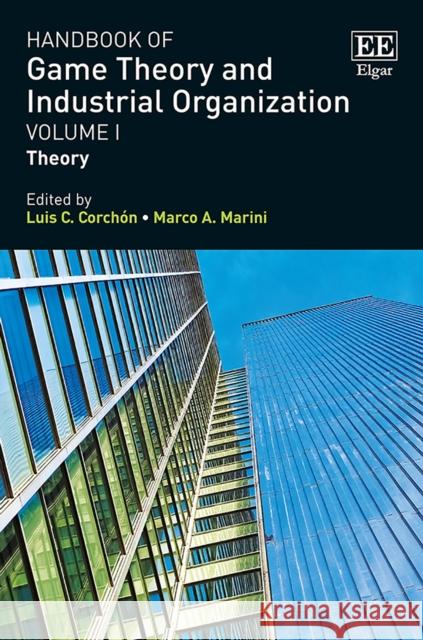Handbook of Game Theory and Industrial Organization, Volume I: Theory » książka
Handbook of Game Theory and Industrial Organization, Volume I: Theory
ISBN-13: 9781785363344 / Angielski / Miękka / 2020 / 576 str.
Handbook of Game Theory and Industrial Organization, Volume I: Theory
ISBN-13: 9781785363344 / Angielski / Miękka / 2020 / 576 str.
(netto: 274,71 VAT: 5%)
Najniższa cena z 30 dni: 264,86
ok. 30 dni roboczych.
Darmowa dostawa!
Industrial organization studies how markets allocate resources, specifically when there are few agents or when there are frictions that render the price-taking paradigm unsuitable. Game theory explores situations in which agents interact strategically and provides a useful foundation for studying many traditional industrial organization topics. The first volume of this wide-ranging Handbook contains original contributions by world-class specialists. It provides up-to-date surveys of the main tools of game theory that are used to model industrial organization topics. The Handbook covers numerous subjects in detail including, among others, the tools of lattice programming, supermodular and aggregative games, monopolistic competition, horizontal and vertically differentiated good models, dynamic and Stackelberg games, entry games, evolutionary games with adaptive players, asymmetric information, moral hazard, and learning and information sharing models. Technical yet accessible, this comprehensive resource will be required reading for both established researchers as well as graduate or advanced undergraduate students in industrial economics and game theory.











